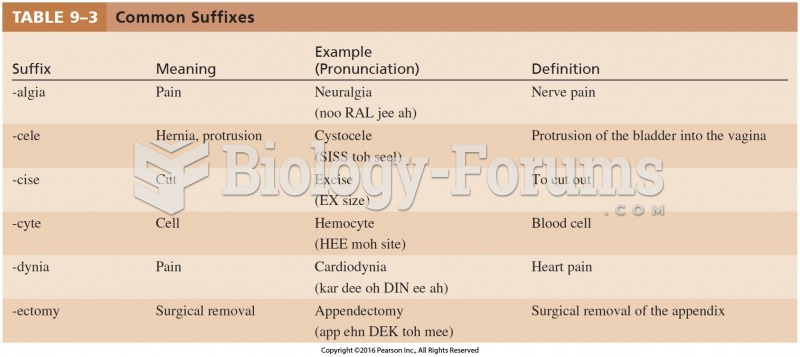|
|
|
All adults should have their cholesterol levels checked once every 5 years. During 2009–2010, 69.4% of Americans age 20 and older reported having their cholesterol checked within the last five years.
Your chance of developing a kidney stone is 1 in 10. In recent years, approximately 3.7 million people in the United States were diagnosed with a kidney disease.
People often find it difficult to accept the idea that bacteria can be beneficial and improve health. Lactic acid bacteria are good, and when eaten, these bacteria improve health and increase longevity. These bacteria included in foods such as yogurt.
Amoebae are the simplest type of protozoans, and are characterized by a feeding and dividing trophozoite stage that moves by temporary extensions called pseudopodia or false feet.
On average, someone in the United States has a stroke about every 40 seconds. This is about 795,000 people per year.
 In addition to common schools, thousands of female seminaries were built between 1820 and 1850, many
In addition to common schools, thousands of female seminaries were built between 1820 and 1850, many
 Common skin signs are often evidence of an illness or disorder. A macule is a discolored spot on the ...
Common skin signs are often evidence of an illness or disorder. A macule is a discolored spot on the ...





